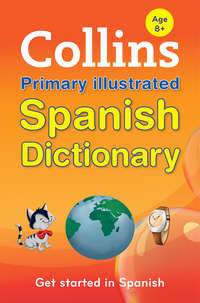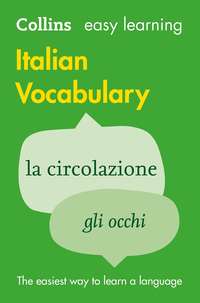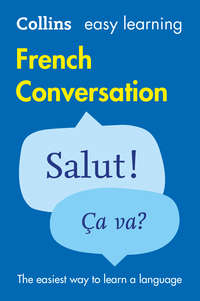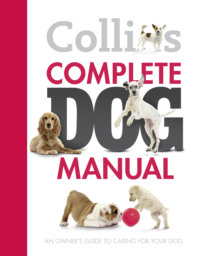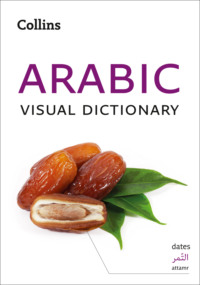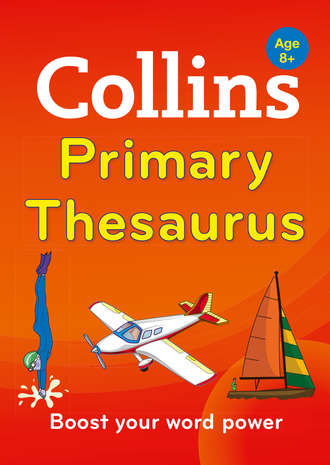
Полная версия
Collins Primary Thesaurus
persevere
It pays off, in the end, to persevere with a job.
persist
“If you persist in talking, you’ll lose your playtime,” Mrs Rasheed warned.
proceed
Grandad took a sip of his tea and then proceeded with his story.
castle NOUN
A castle is a large building with walls or ditches round it to protect it from attack.
fort
The cavalry rode out from their fort, trumpets blaring and guns blazing.
fortress
On the very peak of the mountain stood the enemy fortress.
stronghold
King Edward I built strongholds in Wales.
Parts of a castle:
drawbridge
dungeon
keep
hall
moat
portcullis
tower
cat NOUN
A cat is a small animal covered with fur that people in some countries keep as a pet.
Some types of cat:
Abyssinian
Manx
Persian
Siamese
tabby
tortoiseshell
Some wild cats:
cheetah
jaguar
leopard
lion
panther
puma
tiger
catch (1) VERB
If you catch a person or animal, you capture them.
arrest
Navy police arrested the drunken sailor.
capture
By luck, the cowboys managed to capture the runaway horse.
ensnare
The unfortunate trespasser found herself ensnared in barbed wire.
trap
In the forests of Russia, hunters trap animals for their skins.
catch (2) NOUN
A catch is a hidden difficulty.
disadvantage
One of the disadvantages of having long hair is that it can get very tangled.
drawback
There is a drawback to eating too much chocolate. It can make you feel sick!
snag
When putting the shelves up we came across a snag – we didn’t have enough screws.
cause (1) VERB
If someone or something causes something, they make it happen.
bring about
The curse of the Baskervilles brought about the family’s doom.
create
Last night some lads created a disturbance in our street.
lead to
More policemen on the beat led to a drop in the crime rate.
produce
Who would have thought that a small baby would produce so much noise?
cause (2) NOUN
The cause of something is the thing that makes it happen.
origin
The origin of the tradition was a mystery.
source
Gambling was the source of all the earl’s troubles.
cautious ADJECTIVE
Someone who is cautious acts carefully to avoid possible danger or disappointment.
careful
Ashley was careful about handling the precious eggs.
wary
The sparrows were wary of the nearby cat.
ANTONYM: reckless
celebration NOUN
A celebration is an occasion to mark a happy day or event.
Types of celebration:
anniversary party
banquet
birthday party
carnival
feast
festival
fête
gala
jubilee
party
reunion
wedding
centre NOUN
The centre of an object or area is the middle of it.
core
The earth’s core consists of molten rock.
heart
In the heart of the city, a musician played on a street corner.
hub
At the hub of operations was my brother, with his walkie-talkie set.
middle
The bull’s-eye is in the middle of a dartboard.
certain (1) ADJECTIVE
If you are certain about something, you are sure it is true.
confident
Shula was confident that the rumour she had heard was true.
convinced
Al was convinced that he would pass his exam.
positive
“Are you positive that’s what you want for your birthday?” Mum asked.
sure
“I’m sure I put my homework in my bag, but I can’t find it,” I said.
ANTONYM: uncertain
certain (2) ADJECTIVE
If something is certain to happen, it is likely to happen.
inevitable
It was inevitable that the bully would meet his match before long.
likely
According to the weather forecast, it’s likely to be a sunny afternoon.
unavoidable
When its brakes failed, the lorry faced an unavoidable collision.
ANTONYM: unlikely
certainly ADVERB
Certainly can mean without any doubt.
definitely
“Put me down for a ticket,” Dad said. “I’m definitely going to the game.”
undoubtedly
The horse was undoubtedly the fastest that Jo had ridden.
without doubt
Without doubt, geography was John’s favourite subject.
chair NOUN
A chair is a seat for one person to sit on, with a back and legs.
Types of chair:
armchair
deckchair
dining chair
highchair
office chair
rocking chair
chance (1) NOUN
If there is a chance that something will happen, it might happen.
danger
At oil refineries, there is always a danger of fire breaking out.
likelihood
With those clouds, there was a likelihood of rain before long.
possibility
“Is there any possibility of a lift, please?” Hamal asked.
probability
It is a probability that humans will one day walk on Mars.
chance (2) NOUN
Something that happens by chance happens unexpectedly, without being planned.
accident
It was totally by accident that Mum bumped into her old friend.
coincidence
“What a coincidence!” Grandad gasped. “I went to that school too!”
fortune
By good fortune, a passer-by heard the calls of the stricken climber.
luck
The tennis player’s injury was just bad luck.
stroke of luck
By a stroke of luck, the massive doors were unguarded.
change (1) VERB
When something changes, or you change it, it becomes different.
alter
Gavin has really altered since he won the “Be a Pop Star” competition.
convert
Dad converted the old shed into a play hut.
mutate
Before Kirk’s eyes, the handsome crewman mutated into a fanged, drooling monster.
transform
Bond’s car transformed into a boat.
change (2) VERB
If you change something, you swap or replace it.
exchange
We had to take my new shoes back and exchange them for a larger size.
replace
Today Mr Woo replaced his old banger with a smooth sports car.
substitute
“What happens if you substitute milk for water?” the teacher asked.
swap
Dylan swapped his cards for Salman’s.
trade
Mum joked that she wanted to trade my dad for a newer model!
change (3) NOUN
A change is a difference or alteration in something.
difference
Mum and I noticed the difference in Gran after her illness.
metamorphosis
Caterpillars undergo an amazing metamorphosis into butterflies.
transformation
When Mum emerged from the hairdresser’s, what a transformation!
character NOUN
Someone’s character is all the qualities which combine to form their personality.
nature
It was not in Abigail’s nature to be rude.
personality
Gran had a bubbly personality, and was always making friends.
temperament
A dog’s temperament depends largely on how it is treated.
charge VERB
If something or someone charges, they rush forward.
attack
The infantry attacked the fortress at dawn.
rampage
Boadicea’s angry tribesmen rampaged through the streets, yelling and whooping.
run wild
Leaving their longships, the Viking marauders ran wild in the Saxon village.
rush
When the bell went, Boris rushed for the door, only to be hauled back.
storm
On D-Day 1944, Allied troops stormed the beaches and cliffs of Normandy.
chase VERB
If you chase someone, you run after them or follow them in order to catch them.
follow
Fans followed the pop idol wherever he went.
hound
Reporters hounded the star until she gave them an interview.
hunt
Lions hunt antelope as their prey.
pursue
Detectives pursued the gangster to South America.
track
Sniffer dogs tracked the thief to a disused dockside warehouse.
cheap ADJECTIVE
Something that is cheap costs very little money.
bargain
My bargain laptop computer cost half of what most people pay.
economical
My old car is very economical on fuel, but costs more in repairs.
inexpensive
The jacket was inexpensive but looked very smart.
reasonable
Mum thought that it was a reasonable price for a second-hand mountain bike.
cheat (1) VERB
If someone cheats, they lie or do unfair things to win or get what they want.
con INFORMAL
The thief conned his way into the old woman’s house by asking if he could use her phone for an emergency.
deceive
“It’s no good trying to deceive me,” Mum said. “I know you’re up to something!”
double-cross INFORMAL
The thief double-crossed his accomplice and took all the cash.
dupe
The stamp collectors were duped into buying some very convincing fakes.
rip off INFORMAL
“We were ripped off there!” snorted my brother disgustedly, as we left the burger bar.
swindle
The cashier had systematically swindled the bank for years before she was caught.
trick
Trying to trick his pursuers, the getaway driver doubled back.
cheat (2) NOUN
A cheat is a person who lies or does unfair things to win or get what they want.
con man INFORMAL
The con man pretended to be from the electricity company.
double-crosser
The gangster snarled “You dirty double-crosser!” and pulled the trigger.
swindler
The swindler sold villas to his clients which did not really exist.
check (1) VERB
If you check something, you examine it to make sure that everything is all right.
assess
Miss Connolly assessed our term’s work before writing her report.
examine
Sherlock Holmes picked up the knife and examined it.
inspect
The council team inspected the food cupboards carefully.
test
To test our multiplication tables, Mr Murphy fires questions at us.
check (2) NOUN
A check is an inspection to make sure that everything is all right.
assessment
Every soldier has to do his PFA, or Physical Fitness Assessment.
check-up
After his fall, Grandad had to visit the doctor’s for a check-up.
examination
Detectives carried out a minute examination of the crime scene.
inspection
Even the best schools are subject to regular inspections.
test
Older vehicles have to go through a safety test to ensure that they are roadworthy.
cheeky ADJECTIVE
Someone who is cheeky is rude and disrespectful, often in an amusing way.
disrespectful
It’s a mistake to be disrespectful to teachers.
impertinent
What an impertinent thing to say to someone who has helped you!
impudent
The impudent waiter said the cheekiest things to his customers.
rude
“Try not to be rude to people, even if they are unpleasant to you,” said Mum.
ANTONYMS: respectful or polite
cheerful ADJECTIVE
A cheerful person is happy.
bright
I’m quite bright in the morning.
cheery
The postman gave us a cheery wave.
chirpy INFORMAL
Despite her aches, Gran is always chirpy.
jolly
The jolly poacher chuckled as he popped another salmon in his bag.
light-hearted
After Scrooge changed his character, he was light-hearted at Christmas.
merry
Mum and her friend had a merry time looking at old school photos.
chew VERB
When you chew something, you use your teeth to break it up in your mouth before swallowing it.
chomp
The horse chomped its way through a field of lettuces.
crunch
Some people crunch their lollipops. Others suck them.
gnaw
Beavers had gnawed away the bark of the tree.
munch
I hate it when people munch their lunch with their mouth open.
child NOUN
A child is a young person who is not yet an adult.
juvenile
In the eyes of the law, anyone under 18 is a juvenile.
kid INFORMAL
Mum takes several kids to school, not just us.
nipper INFORMAL
“When I was a nipper,” Grandad said, “I used to climb that oak tree.”
youngster
The youngster ran out into the road without even looking.
➔ See baby

childish ADJECTIVE
If someone is childish, they are not acting in an adult way.
immature
To lark around like that was immature for a man of his age.
infantile
Jafar’s temper tantrum was very infantile.
juvenile
“Such juvenile behaviour must be punished,” the head teacher said grimly.
choice (1) NOUN
A choice is a range of different things that are available to choose from.
selection
What a selection of chocolates greeted my eyes when I opened the box!
variety
There was a variety of films to choose from on the plane.
choice (2) NOUN
A choice is something that you choose.
option
We had no option but to accept a refund when our flights were cancelled.
preference
My preference is action movies rather than romances.
selection
To her disgust, the judges’ selection did not include Mrs Whipple’s fairy cakes.

choose VERB
If you choose something, you decide to have it or do it.
opt for
Mum and Dad couldn’t decide which holiday to opt for: Florida or France.
pick
My mean sister always picks the chocolates that I want.
select
The archer selected an arrow.
single out
The dog show judge singled out Wuffles as being especially intelligent.
church NOUN
A church is a building where Christians go to pray.
Some parts of a church:
aisle
altar
choir
font
lectern
nave
pew
pulpit
spire
steeple
tower
vestry
circle VERB
If someone or something circles an object, they move around it in a circle.
lap
The cyclist lapped the track for the final time.
orbit
The earth takes around 365 days, or one year, to orbit the sun.
➔ See go round (1)

circumstances NOUN
The circumstances of a situation or event are the conditions that affect what happens.
background
Our history teacher explained the background of the American Civil War.
context
The police had to consider the context of the accident.
situation
The situation was difficult for everyone.
claim VERB
If you claim that something is the case, you say that it is so.
allege
The witness alleged that Jones had threatened several people.
argue
The boss argued that it was fair to sack someone who worked slowly.
declare
The smuggler declared that he had nothing illegal in his case.
insist
The arrested woman insisted that the officer had made a mistake.
maintain
Hal maintained that only Leroy was better than him at basketball.
class (1) NOUN
A class is a group of pupils or students who are taught together.
group
Mum’s quilting group meets on Tuesday.
set
My clever sister is in the top maths set.
stream
At the grammar school, children were put in streams according to their ability.
tutor group
Jennifer is in Mrs Burton’s tutor group.
class (2) NOUN
A class of people or things is a group of them that are alike in some way.
category
Nitesh entered the junior category of the poetry competition.
kind
Beavenutti is the best restaurant of its kind in the area.
sort
“What is your favourite sort of music?” Carly asked Hannah.
type
The market stall sold lots of different types of vegetables and fruits.
clean (1) ADJECTIVE
If something is clean, it is free from dirt or unwanted marks.
immaculate
The car was immaculate when Dad bought it, but filthy two days later.
spotless
“I want this cabin spotless,” rasped the captain, “or you’re for the high jump!”
ANTONYM: dirty
clean (2) VERB
If you clean something, you remove dirt from it.
Different ways to clean:
bathe
brush
dry-clean
dust
hoover
launder
mop
polish
rinse
scour
scrub
shampoo
sponge
sweep
swill
vacuum
wash
wipe
clear (1) ADJECTIVE
If something is clear, it is easy to understand, see or hear.
apparent
It was apparent we were going to lose, right from the start of the match.
definite
There were definite indications that the swallows were nesting in the eaves.
distinct
We could hear the distinct sound of church bells in the distance.
evident
It was evident from the wet roads that it had been raining.
obvious
The man showed obvious signs of having been in a fight.
plain
“It’s plain to see that you have learnt very little,” the head teacher said.
ANTONYM: unclear
clear (2) ADJECTIVE
A clear sky has no clouds in it.
bright
A very bright morning can mean rain later.
cloudless
Skylarks sang high in the cloudless sky.
moonlit
The UFO slid silently across the moonlit sky.
starlit
On that starlit night, I could have stayed for hours by the shore.
ANTONYM: cloudy
clear (3) ADJECTIVE
If something is clear, it is easy to see through.
see-through
My mum has a see-through plastic coat.
translucent
The dragonfly’s translucent wings beat against the sky.
transparent
Scott covered his book with transparent sticky-backed plastic.
ANTONYMS: murky or opaque
clever ADJECTIVE
Someone who is clever is intelligent and quick to understand things.
brainy
My brainy brother came top of his class.
bright
Jim was only three, but he was bright enough to understand what was going on.
intelligent
“It’s no good just being intelligent. You have to work hard too,” said my English teacher.
smart
He’s far too smart to get mixed up in anything illegal.
ANTONYM: unintelligent
climb VERB
When you climb, you move upwards.
ascend
Alice ascended the stairs, carrying a candle.
clamber up
Having locked himself out, Dad had to clamber up the drainpipe to an open window.
scale
The daring climber had to scale the overhanging rockface.
clock NOUN
A clock is an instrument that measures and shows the time.
Other instruments that measure the time:
alarm clock
digital clock
egg timer
grandfather clock
hourglass
stopwatch
sundial
timer
watch
wristwatch
close (1) Said “klohz” VERB
If you close something, you move it so that it is no longer open.
seal
The crewman sealed the hatch and the submarine was ready to dive.
secure
“Make sure you secure all the bolts on that cage,” the zookeeper warned.
shut
“Shut the door behind you, but first check you’ve got your key,” said Mum.
ANTONYM: open
close (2) Said “klohss” ADJECTIVE
If something is close to something else, it is near to it.
adjacent
The amusement arcade was adjacent to the holiday camp.
handy
Our chalet was handy for the camp shop.
nearby
Grabbing a towel that was nearby, Jacinth soaked it and threw it over the flaming pan.
neighbouring
The neighbouring woods are full of bluebells.
ANTONYM: far
cloth NOUN
Cloth is fabric made by a process such as weaving.
fabric
“This fabric will make lovely curtains for the spare room,” said Gran.
material
The tailor used only the best material for the suits he made.
textiles
Natural textiles such as wool are warmer than man-made ones.
Some types of cloth:
corduroy
cotton
denim
felt
lace
nylon
satin
silk
tweed
velvet
wool
clothes PLURAL NOUN
Clothes are the things people wear on their bodies.
clothing
“My son is in the clothing trade,” Manny told everyone proudly.
costume
At the open-air museum, the guides wore period costume.
dress
“Shorts and trainers are hardly suitable dress for a wedding,” Lady Etherington said.
garments
The notice read: “To try garments on, please use the changing room”.
gear INFORMAL
As the forecast was poor, Kayla took her wet weather gear with her.
Some clothes:
blouse
burqa
cardigan
coat
dress
glove
hat
hijab
jacket
jumper
pyjamas
robe
sari
scarf
shalwar-kameez
shirt
shoe
skirt
sock
stocking
tie
tights
trousers
T-shirt
underwear
vest
cloudy (1) ADJECTIVE
If the sky is cloudy, it is full of clouds.
dull
The weather was dull, but there was some sunshine forecast for later.
gloomy
It was a gloomy day for the start of our holiday.
overcast
The sky was overcast when the plane took off.
cloudy (2) ADJECTIVE
Cloudy can mean difficult to see through.
muddy
The scuba divers could not find the shipwreck in the muddy water.
murky
The travellers could see a faint light shining through the murky evening – shelter at last!


